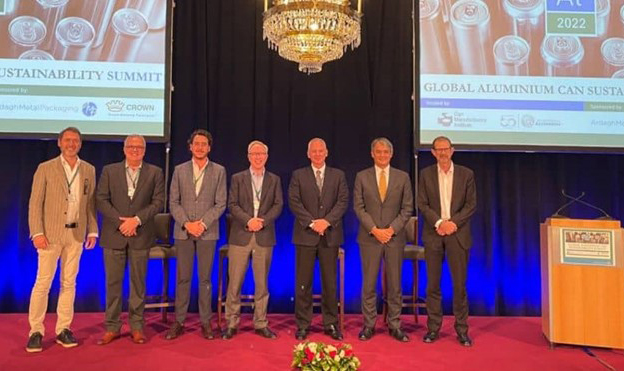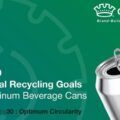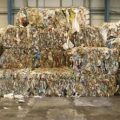The Summit Global Aluminum Can Sustainability ReportThe event, held September 13-14, in Rome, Italy, brought together more than 100 leaders from organizations around the world across the aluminum beverage can value chain to put into practice the decarbonization of aluminum produced for can sheet. Another proposal is to generate transparent information on recycling and circularity, including how to measure recycled content in beverage cans.
Can manufacturers Ardagh Metal Packaging and Crown Holdings sponsored this first-of-its-kind event to leverage sustainability performance and meet Ardagh and Crown’s ambitious sustainability goals across the aluminum beverage can value chain. The event was organized in collaboration with the Can Manufacturers Institute, which represents U.S. metal can manufacturers and their suppliers, as well as the International Aluminium Institute, which represents the global primary aluminum industry.
The summit advanced efforts to strengthen the sustainability performance of the beverage can, further cementing the can as the most sustainable circular beverage package. Speakers at the summit were executives and thought leaders from inside and outside the aluminum beverage can industry. Outside of the can industry, representatives from the Energy Transitions Commission, McKinsey and Science Based Targets, as well as financial institutions Citi, Deutsche Bank and Federated Hermes also attended. In addition, Laura Thompson, of the environmental nonprofit GreenBlue, presented her initial findings on how to standardize the measurement of recycled content in aluminum beverage cans to international standards.
“The aluminum beverage can is the most recycled beverage container in the world, and these high levels of recycling mean significant carbon savings, as processing recycled aluminum uses about 5 percent of the energy needed to extract and produce new aluminum.”said Jennifer Cumbee, sustainability manager for Ardagh Metal Packaging. “This Summit will help further mobilize our industry towards decarbonization and increased levels of recycled content, further positioning the beverage can as a leader in sustainability excellence,” he noted.
Precisely, aluminum beverage cans manufactured in North America currently average 73 percent recycled content. “An aluminum beverage can with higher recycled content has a lower carbon footprint.” said John Rost, global sustainability and regulatory affairs, Crown Holdings. “As a result, there is increased interest globally, from consumers to customers to legislators, in the amount of recycled content in beverage containers. Therefore, in addition to discussing decarbonization processes, another key focus of the Summit is to ensure global standardization on how the industry calculates recycled content in aluminum beverage cans. These steps are indicative of our industry’s focus on supporting our customers’ sustainability platforms and being a leading example of a circular economy.” concluded.














